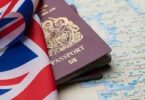Monitoring Desk
SYDNEY/HONG KONG: New Zealand has felt the wrath of China, its largest export market and second largest source of foreign tourists, with many scholars calling it a backlash for the South Pacific country’s snubbing of Huawei Technologies.
Earlier this week Beijing abruptly announced it had postponed a tourism event scheduled for next week in Wellington. Although the event, meant to usher in a “year of tourism,” had been in the works for years, Beijing cited a scheduling snafu for the postponement.
The announcement, which came earlier this week, pricked the attention of New Zealand, which received almost 350,000 Chinese holidaymakers in the year through this past October, an 11.7% increase from the previous 12 months, according to Tourism New Zealand. The rate of increase is higher than that for tourists from any other country.
New Zealand’s tourism industry is “poised to take a large financial loss,” says a report published this week in the Global Times, a tabloid that is part of the People’s Daily media group, a Chinese Communist Party organ. “New Zealand’s strained political relationship with China — following the ban of Huawei from building part of its 5G networks — is costing the country more than it can afford.”
The tabloid, known for promoting Chinese nationalism, quoted an outraged Beijing tourist who canceled his 15,000-yuan ($2,200) trip to New Zealand. “Is it a kind of robbery? New Zealand stabbed us in the back but asks for our money?”
International tourism contributed 17.4% to New Zealand’s total goods and services exports, according to official statistics in 2016. The sector directly employs 7.5% of the New Zealand workforce, and China is the country’s second largest source of tourists, after Australia.
“Tourism could have an imminent impact,” said Yuan Jingdong, an associate professor at the University of Sydney who specializes in Chinese defense and foreign policy. This impact will not only hit tourism, he said, but other sectors will likely have some time before they are affected.
The postponement of the tourism show and other little-explained happenings are “clearly expressions of deep annoyance in Beijing about Wellington’s growing China wariness and more public criticism of Chinese policy,” Yuan said.
He added that New Zealand’s decision to cancel Huawei’s participation in the country’s 5G network is seen as a “direct rebuke of China,” seriously harming China’s economic interests and tarnishing Huawei’s reputation.
“The irony of all of this,” Yuan said, “is New Zealand, like Canada, has been one of the few Western countries that have adopted an open and friendly attitude toward [China], hoping that economic interactions and people-to-people contacts help narrow, not widen, the gap between the [countries].”
While Chinese tourists can be an important source of revenue for the countries they visit, they also sometimes act in accordance with Chinese foreign policy.
About three years ago, after Taiwanese voters replaced a president who was friendly toward China with an independent-minded leader, the number of Chinese tourists to the island dropped precipitously. South Korea suffered a similar falloff after it deployed U.S. antimissile batteries equipped with radar capable of peering into Chinese airspace.
It was late November when New Zealand at least temporarily blocked Huawei from selling next-generation 5G technology to a cellphone service provider in the country.
The little-explained events began shortly thereafter. New Zealand Prime Minister Jacinda Ardern was scheduled to visit China late last year, but Beijing called off the trip.
Last weekend, more than four hours into its journey to Shanghai, an Air New Zealand flight made a U-turn and returned to Auckland. The flag carrier said improper paperwork was to blame; news reports have cited the airliner’s references to Taipei, the capital of what China regards as a renegade province.
Other New Zealand industries also have exposure to China, the largest buyer of the country’s goods. According to New Zealand government data, the value of exports to China, mostly dairy products and timber, came to 15.3 billion New Zealand dollars (US$10.44 billion) in the year through last March.
“Was the plane turnaround politics or poor paperwork? We might never know,” said David Capie, director of the Center for Strategic Studies at Victoria University of Wellington. “The deniability of this kind of retribution is part of what makes it an appealing tool. But when you suddenly have multiple problems and ‘scheduling issues’ cropping up all across the relationship like this, you know something’s gone badly wrong.”
Anne-Marie Brady, a professor at the University of Canterbury who studies Chinese diplomacy, said giving in to paranoia regarding China serves little purpose.
“Trade and tourism figures are strong and have increased significantly in the last year,” she wrote in an email. “This is what we should be focusing on, not trying to read the tea cups as to whether the Air NZ plane being turned back or other small events add up to a deliberate snub.”
Brady has been in the news recently. Beginning in late 2017, after she published a paper on the Chinese Communist Party’s influence in the Pacific, she had her office broken into twice, her house burglarized and her car damaged. She also received a threatening letter and anonymous phone calls. A detailed police investigation has turned up no leads.
Prime Minister Ardern has remained neutral regarding what China’s intentions might be. On Tuesday, she told a TV interviewer that her trip to China has yet to be rescheduled. She also described New Zealand’s relationship with China as “complicated.”
“There is no doubt the relationship comes with its challenges as our relationships with a range of countries will from time to time,” she said.
The New Zealand government denies politics was involved in the postponements of Ardern’s visit and the tourism event.
But politics, at least domestic politics, is at play. The prime minister is getting push back from the country’s largest opposition party. Simon Bridges, the leader of the New Zealand National Party, said the Sino-New Zealand relationship is “steadily deteriorating” under the Ardern administration.
And the politics of security is at the root of the deteriorating ties. New Zealand is part of the intelligence-sharing alliance known as The Five Eyes. It says it moved against Huawei due to a “significant” security risk. The U.S., also a Five Eyes partner, has been beating the drum about the potential of Huawei 5G hardware being used to funnel information to Beijing. Now New Zealand has come down on the side of its intelligence-sharing partner in the Huawei debate.
The country of less than 5 million people is also reinforcing its support of smaller South Pacific nations due to its concern about China’s growing presence in the region.
Capie, the Victoria University researcher, said the rift in the countries’ relationship has been growing for a while now.
“There’s no doubt,” he said, that New Zealand’s “coalition government [has brought matters to a head with its] sharper tone on defense policy, on [the Belt and Road Initiative], Huawei and the way [Wellington] has framed its Pacific policy as pushing back against China.
“I think there’s more stormy weather to come. Beijing sees the Huawei issue as a global one, and I think will treat a confirmed ban on using Huawei in 5G as an indication of how New Zealand sees its wider China relationship going. It won’t buy the line it’s just a technical, not a political, decision. I can’t see the decision changing, so I think things are likely to get worse before they get better.”
Courtesy: (asia.nikkei.com)






